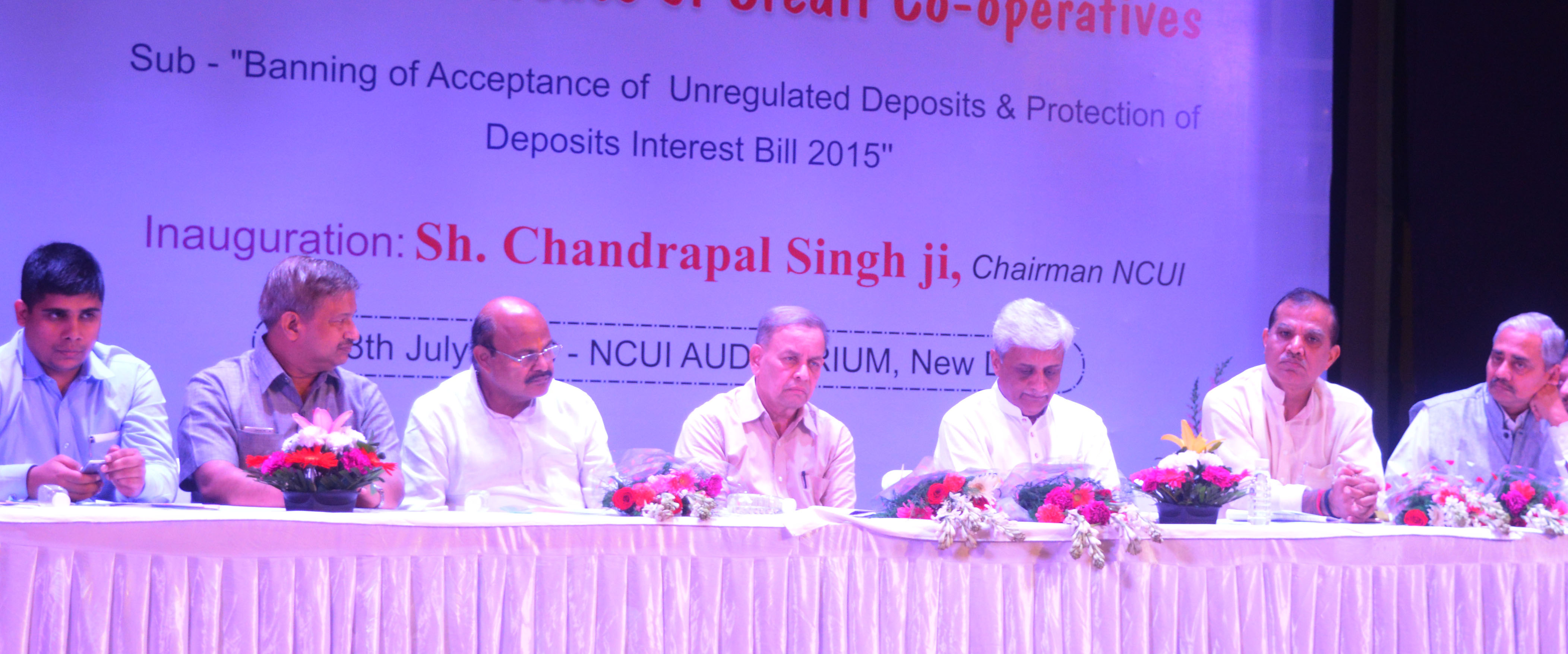Shri Uday Joshi, senior Sahakar Bharati leader read the Charter of Self Regulation for credit coops. Joshi said Sahakar Bharati had come to know of the Bill in advance and thus began an exercise of drafting this charter after wide consultations, he said.
Joshi explained each point graphically before the assembled gathering and exhorted them to do so in their respective societies. ‘In case of any further queries, we are there to help you out”, Joshi assured.
Salient Features:
1.Capital Adequacy:
Minimum 12% Capital Adequacy to be attained in 2 years i e by 31st March, 2018.
2.Cash Reserve Ratio:
Cash Reserve Ratio not to be below 5% (inclusive of balances in CD Accounts with all Banks).
3.Statutory Liquidity Reserve:
a.Statutory Liquidity Reserve to be 20% of Net Demand and Time Liability (NDTL).
b.The same to be invested with PSU Banks/in Govt Securities/Govt guaranteed Bonds or with Private Sector/Co Op Banks which qualify as per RBI norms to be classified as Financially Sound and Well Managed Banks (FSWM).
c.Position of Banks where funds are invested to be reviewed annually.
4.Deposit:
a.Every Co Op Credit Society will accept the Deposits only from its Regular Members (A Class Shareholders)
b.Maximum rate of interest on Deposits will not be more than 1% above the rate offered by any PSU Bank/Private Sector Bank/Apex Co Op Bank/Dist Co Op Bank in the area of operation of a Co Op Credit Society.
5.Loans & Advances:
a.CD Ratio not to exceed 70%.
b.Per Borrower Exposure to be limited to maximum of 15% of Net Owned Funds.
c.Group Exposure to be limited to maximum of 40% of Net Owned Funds.
d.Depending upon the Risk Appetite exposure to unsecured advance to be decided by each Co Op Credit Society. However, per borrower unsecured advance not to exceed Rs 2 lacs.
e.No Co Op Credit Society should concentrate its lending to any one Sector. Total unsecured Exposure not to exceed
f.However, maximum Exposure limit maybe exceeded where the security (Gold, Silver, NSCs, KVPs, LIC Policies, etc) is pledged and the Borrower has sufficient and steady income sources to service the borrowings.
g.Income Recognition and Asset Classification norms to be adopted and implemented in respect of all Non Interest Earning borrowal accounts. All such accounts (NPAs) should be fully provided for in equal installments in a maximum period of 5 years.
6.Computerization:
All Operations to be fully computerized and CBS to be fully operative by 31st March, 2018 where a Co Op Credit Society has more than one branch.
7.Audit & Inspection:
a.Financial Accounts to be audited only by Chartered Accountants.
b.System Audit to be undertaken annually by qualified Professionals/Agencies.
8.Dividend :
a.Maximum payout of dividend to be 15% per annum.
b.On exceptional occasions eg. Silver/Golden Jubilee Year, attaining high business level of say, of Rs 100/200 crores, etc, additional maximum 5% may be paid as Dividend.
9.Head Room Capital:
For opening new branches each Co Op Credit Society should have minimum Head Room Capital as below –
a.Where population is below 20,000 – No Head Room Capital is required.
b.Where population is below 20,000 to 5 lacs- Head Room Capital to be Rs 5 lacs per branch.
b.Where population is above 5 lacs – Capital of Rs 10 lacs per Branch.
10.Multipurpose Society:
Where a Co Op Credit Society undertakes multipurpose activities, vertical accounting system to be followed for each activity and necessary resources deployed for each such activity will be subject to approval of the Depositors and AGM.
11.Training:
For Capacity Building and Good Governance, Training will be imparted to all Managers and Staff. Special Training Programmes also be designed for Directors.
12.Annual Report:
Annual Report should provide full and complete details about the financials, operations, activities, existing and propose schemes, etc with explanatory notes.
